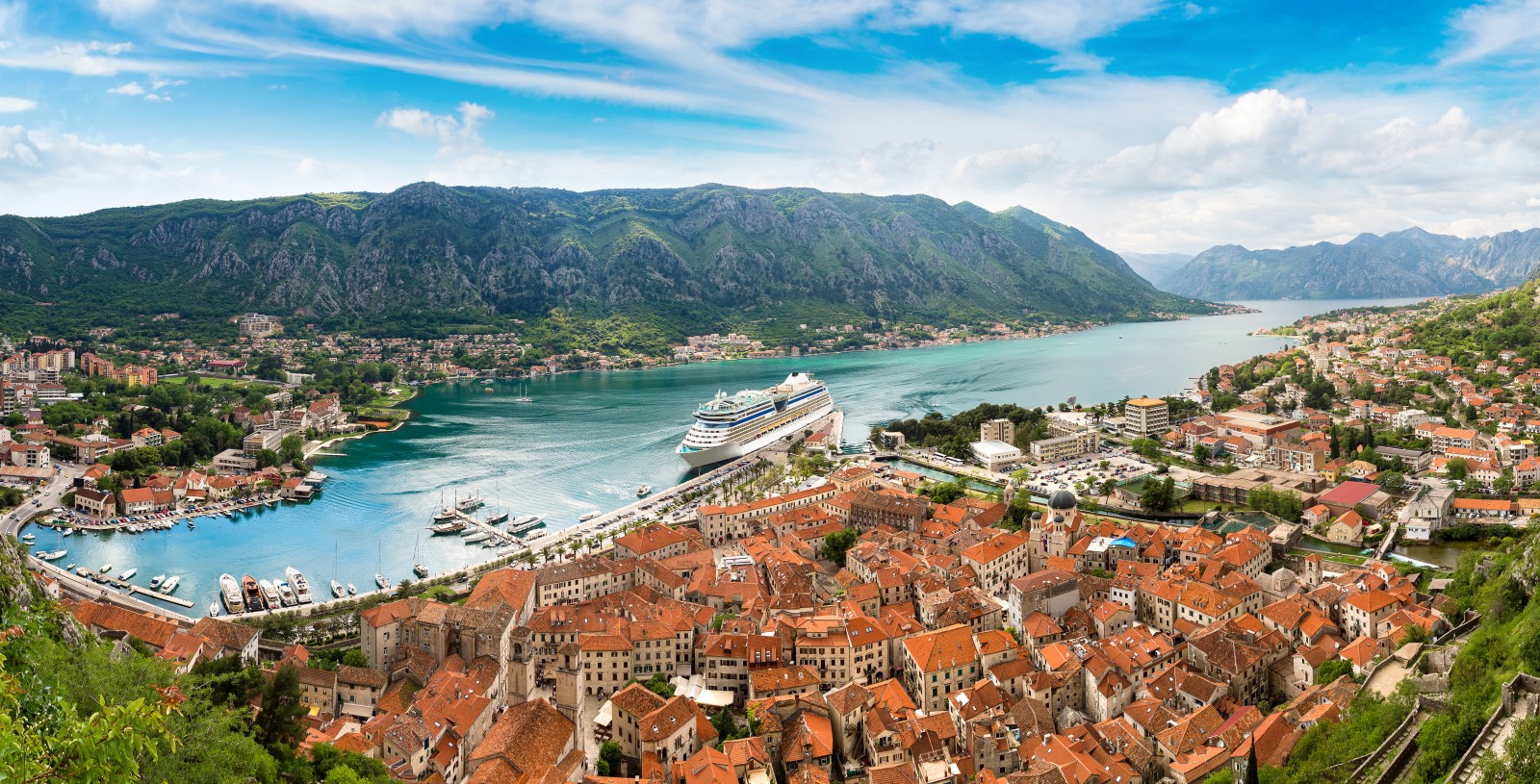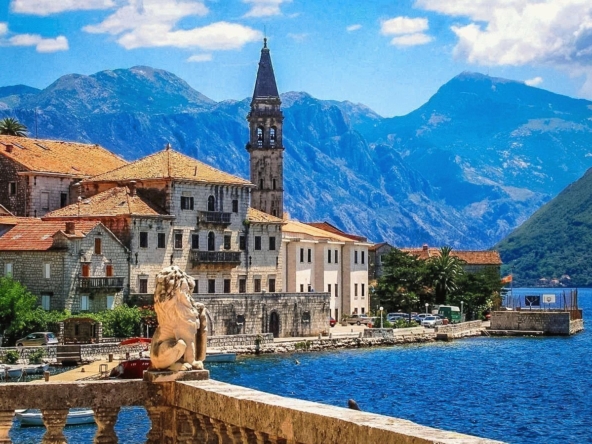Kotor is more than two thousand years old, and its name stems from the word Dekatera (from the old Greece katareo – meaning HOT). The written sources mention the “Upper town”, which referred to the oldest part of the lodgment on the top of the hill Sveti Ivan (St. Ivan) which is located above Kotor, and the “Lower town”, present old town Kotor.
The rich history of Kotor, is parallel to the rich culture of the town with which many conquerors ruled: the Illyrians, the Venetians, the Austrians, the French…
First the town was ruled by the Illyrians (III and II century B.C.). On the other hand the Romans are considered to be the founders of Kotor 168 B.C. – 476 A.D. Kotor was under their reign until the break of Roman Empire in 476 A.D under the name Akruvijum. After the Romans, until the year 1185 Kotor was under the reign of Byzantium. Under the Byzantium reign Kotor was named Dekaderon.
The period from 1185 – 1371 Kotor remains one of the coastal towns which are a part of the Medieval Serbian state, under the management of dynasty Nemanjic. The dynasty Nemanjic, names the town Kotor, and they make Kotor a seaport, through which they have maintained connections with the west. During the reign of the Serbian dynasty Nemanjic, Kotor experiences a significant economical as well as cultural boom.
After Nemanjic dynasty, Kotor is being taken over by the Hungarians. The Hungarian King Ludvik, rules Kotor from 1371 to 1384. After that, Kotor is being governed by Bosnian King Tvrtko I (1384 – 1391).
The period from 1391 to 1420 Kotor is being an independent Republic. Because of the danger of the conquering the town by the Turks, in 1420 people from Kotor voluntarily, and with accordance with the decision of the Big council of Kotor, give the management of the town to the Venetian Republic. Until 1797 Kotor was under reign of Venice. Considering the fact that at that time Kotor was a battle field, the period until 1797 is thought to be the most dramatic and the hardest in the history of Kotor.
The history of Kotor also notes natural catastrophes. Several earthquakes have hit Kotor. Those were earthquakes in: 1537, 1563, 1667, 1729, and 1979. Kotor also survives years when the world was surrounded by a contagious disease – plague in: 1422, 1427, 1457, 1467, and 1572.
From 1797 to 1805 Kotor is a part of the Austrian empire. In 1806 year Russians come to Kotor. They governed the town only for a year – until 1807.
The French soon menace Kotor. As the Russian army was defeated by the French, in the battle near Fridland, Russian with a secret contract give Kotor to France, which rules over Kotor from 1807 until 1813.
Montenegrin ruler Petar I Petrovic helps people from Kotor in September of 1813. At that time Montenegrins and people from Boka (the other name for people from Kotor) fight together against the French Monarchy. So at that time there comes to certain union of Boka and former Montenegro. However that union lasted only for 9 months, because Paris peace congress, which was held in 1814, didn’t acknowledge that union, so after that conference (Boka with its surrounding) is being given to Austria (1814 – 1918).
A one hundred year old reign of Austria over Kotor was marked by numerous rebellions, and uprisings of the people from Boka Kotorska. The liberation of Austria Kotor awaited in 1918.
As all other towns of former Kingdom of Serbs, Croats and Slovenians, Kotor, which was exhausted by numerous occupations, awaited the biggest war ever fought – WW II, in the year 1941. Kotor experiences liberation from the Nazi control in November 1944.
Kotor Legend
Kotor is a town with many diverse stories and legends. Its almost every part, every stone with which its streets are paved, palaces which surround certain parts of the town, monuments which it has, can tell a very nice story, a true story or some catch. Here is the legend on how Dobrota, which is one of the Kotor districts came to be.
Two travelers, who were traveling around the world, came to the grey sea. As they were already exhausted from the long trip, they sat on some kind of a rock to get some rest and to refresh themselves. One of them moved a little bit aside and noticed a plaque with some inscription on it. The inscription said: “Measure 10 lengths dig and stop”. When they read that, they wondered what could that be, so they started to guess together what that instruction could mean. At one moment they came to an idea to measure 10 lengths with the plaque, and so they did. When they measured the required length, they started to dig a small hole in the ground and they found some kind of a small chest.They tried to open it, but to their astonishment, the chest opened by itself.
At the bottom of the chest with golden letters it was written “this is everyone goodness”. For a long time they thought what they should do?! Whether to stay where they are, or to continue their journey? Still, as the message was like some kind of a vow, they stayed in the place where they have found the message. At the same place they quickly made a cottage, and went to sleep.
During the night something very strange happened. From the wooden chest, some new shiny letters glimmered. The new message said: “Wish whatever you want before sleep”!!! As both of the travelers from the beginning of the story were poor, they wished for nice stone houses and beautiful wives. When they woke up in the morning they were speechless. They saw a white castle and a woman on the window looking towards the sea. They immediately moved into the new home, and continued to live in ease. Since that, every night before they went to sleep they wished for another nice house, of which every morning one emerged.
That is how Dobrota, near Kotor, was founded. Stone houses and numerous palaces, which later were built, are the most beautiful details of Dobrota.


